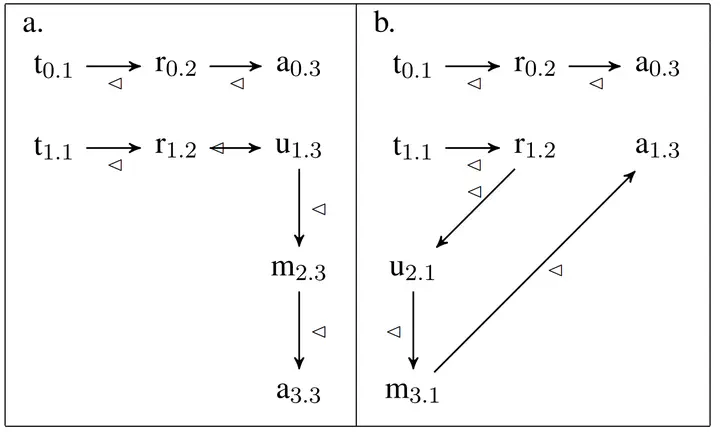
Abstract
Morphological processes are generally computable with 1-way finite-state transducers. However, we show that 1-way transducers do not capture the strong generative capacity of certain morphological analyses for more complex processes, including mobile affixation, infixation, and partial reduplication. As diagnostics for strong generative capacity, we use origin semantics and order-preservation. These analyze the input-output correspondences generated by FSTs and their corresponding logical transductions. For some linguistic analyses of these complex processes, their strong generative capacity is matched by more expressive grammars, such as non-order-preserving transductions and their corresponding 2-way finite-state transducers.
Type
Publication
Proceedings of SCiL 2021